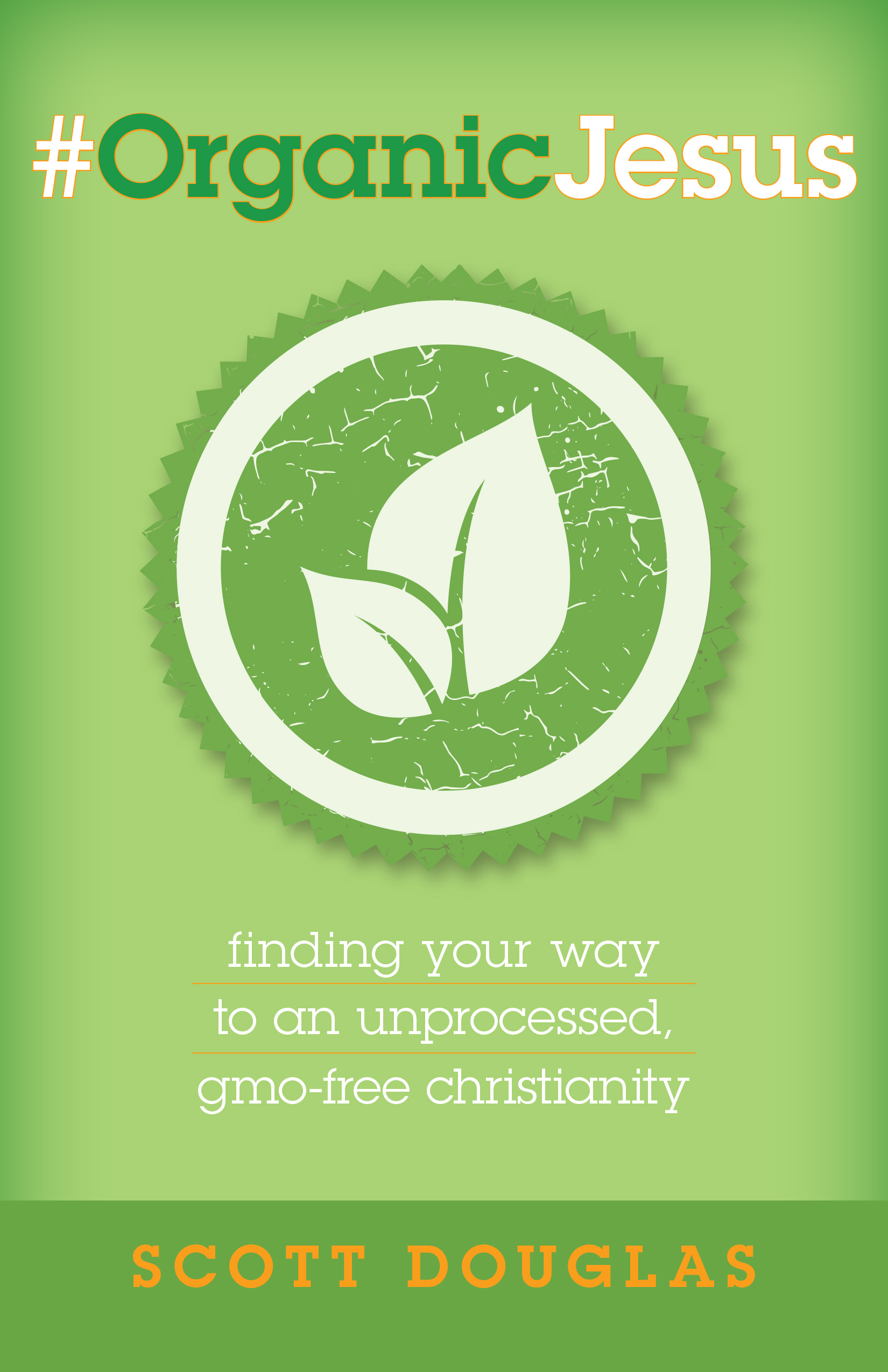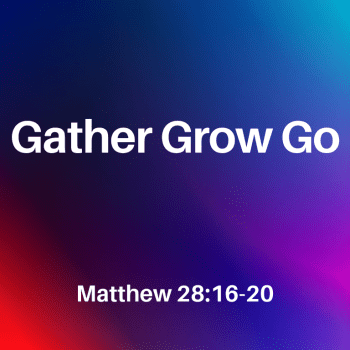#OrganicJesus by Scott Douglas
#OrganicJesus by Scott Douglas is a book that the author states is about “finding your way to an unprocessed, gmo-free Christianity.” The book is divided into two parts: (1) “Not Yo Mama’s Christianity,” and (2) “Not Yo Mama’s Faith.”
Douglas writes like he has a short-attention span. His book is organized for people of the digital generation who are easily distracted. While I appreciate what he says, I found the additional forms he used very distracting. Whether it was writing the sentence backwards, upside-down, useless polls, “getting social”, “Bible hero quizzes,” “WikiBreaks,” or inserted with tidbits of information, the point of the book gets lost (unless that was his point – that the message gets lost because people are easily distracted.)
Douglas says that he wants to find the real Jesus, the real Christianity. He wants it organic in the sense that it is pure, stripped from traditions and ideas inserted by churches and time. Yet, his book is filled with so many extra things that it makes it hard to find the organic point that he is trying to make.
Douglas claims that if we really want to find the true Jesus, what he calls the “Organic Jesus,” then we need to doubt everything (63). Essentially, Douglas uses a postmodern hermeneutic of suspicion. Douglas clearly believes in Jesus, and shows the historical reliability of Jesus’s existence (31-34). Like Descartes, Douglas uses doubt as a way to come to faith in Jesus (37). However, at times, Douglas makes claims that seem strange for Christians to make:
- He claims that Christianity created atheism (61).
-
He suggests that Christianity is a journey, not a lifestyle (65).
-
He claims that the Bible is a myth (69-80).
-
He dismisses the rapture (173).
In the midst of all these claims, Douglas makes the central thesis of the book as he makes the transition between parts one and two. He presents the hypocrisy of Christianity that makes the Christian life seem cheap (97):
“If Christianity is so great that the very Spirit of God indwells believers, then why are so many Christians so flawed? There’s a popular slogan: “I’m not perfect. I’m just saved.” It’s what many Christians use to excuse their unrighteous behavior. Under this theory, Christians can essentially do anything and then shrug their shoulders and say, “I’m not perfect. I’m just saved.””
At times, Douglas presents interesting Biblical analysis. For example, he shows that Genesis was clearly written with a series of patterns (70-72). He gives a great study into the Holy Spirit and the Trinitarian nature of God (185-193). He shares about worship (163-172), prayer (193-207), and He mentions that the best place to learn about other religions is not at a Christian university. The reason Douglas suggests is that he wanted to learn from someone who’s not trying to disprove other religions. He was never trying to disprove anything. He only wanted to have a better understanding (90). His best statement is in the center of the book. He makes a very clear statement about understanding the truth of Christianity (100):
“Here’s the thing: if you really want to understand Christianity, you can’t look to see who all the sinners are, and you can’t look to see who all the saints are. You can only look at who Jesus Christ is. When we look at the church for answers, we see those who have fallen; when we look at God, we see the relationship he wants to have with us.”
Douglas shares his personal experience with bad events that happened in his life and which shook his faith. These included: losing a child (138-143) and growing up as an acolyte in the Methodist church (145-146). These experiences have taught him to be critical of the church. In summary, Douglas promotes a postmodern Progressive Christian theology. He honestly believes in Jesus, but he is disappointed with the church.
Jesus created the church (Matthew 16:18). It’s His idea. As a result, I wish Douglas had provided more positive examples of the way in which the church lives out the Christian faith. Yet, if you have questions about the disconnection between the church and the Christian faith, then this book might be helpful.
Douglas provides more resources as well as opportunities to connect with him. For example, you can visit the OrganicJesus website, or get bonus content download the free app.
You can also connect with Scott Douglas on social media: Twitter, Instagram, Pinterest, Facebook, LinkedIn, as well as everywhere else.
Disclosure of Material Connection: I received this book free from the author and/or publisher through the Speakeasy blogging book review network. I was not required to write a positive review. The opinions I have expressed are my own. I am disclosing this in accordance with the Federal Trade Commission’s 16 CFR,Part 255.














